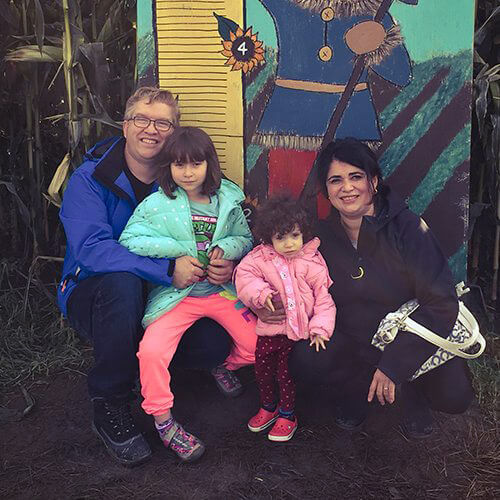Calgary Health Foundation
 The Calgary Health Foundation is a philanthropic organization uniting four hospitals, healthcare providers, donors, volunteers, and community partners with the ambitious aim of revolutionizing people's health. The Calgary Eating Disorder Program and the Women’s Mental Health Clinic are two initiatives supported by the foundation which offer care and resources for women with mental health concerns.
The Calgary Health Foundation is a philanthropic organization uniting four hospitals, healthcare providers, donors, volunteers, and community partners with the ambitious aim of revolutionizing people's health. The Calgary Eating Disorder Program and the Women’s Mental Health Clinic are two initiatives supported by the foundation which offer care and resources for women with mental health concerns.
Calgary Eating Disorder Program
Calgary Eating Disorder Program (CEDP) provides specialized services for Albertans as young as 13 years old diagnosed with anorexia nervosa, bulimia nervosa, and other specified feeding or eating disorders.
Eating disorders have a 5-10% mortality rate, the highest of any mental illness, and suicide and cardiac disease are the leading causes of death among those with anorexia.
Early intervention is vital to lessening the impact of eating disorders. Your participation in the Run for Women will offer those with complex conditions the help they need faster.
Women’s Mental Health Clinic
The Women’s Mental Health Clinic (WMHC) supports women with moderate to severe mental health concerns who are looking to become pregnant, are pregnant, or are up to one year postpartum. Over 600 women access the WMHC annually.
Nearly one in five women will experience mental health difficulties, such as major depression or anxiety disorders, during their reproductive stage years.
Lissette’s Story
On Lissette’s first visit to the Women’s Mental Health Clinic, she met Clinic Founder, Dr. Lisa Gagnon, and told her, “I don’t think you can fix me, I’m broken.”
Lissette, a delivery nurse for 10 years, had her life forever changed after the birth of her daughter, Stella.
“I was the hub of our home before Stella was born”, she explains. “I was the core of our family, the go-to person, the fixer. At work, I was the champion, the charge nurse. I was knowledgeable, so I didn’t see myself at risk for postpartum depression.” But all of that changed when, at full-term, Stella was stillborn.
Shortly after, Lissette found herself needing stitches after self-harming. Her postpartum depression manifested in her not being able to leave the house for a year and losing faith in her decision-making abilities, so much so she became unable to perform simple tasks like going to the grocery store.

“During emergency codes at work, I was cool as a cucumber. To then find myself stopped in a parking lot crying because I couldn’t park the car was not me.”
At home, Lisette found herself losing patience with her older daughter in a way she never had before. She finally recognized that the grief she felt over the loss of Stella was more than she could handle on her own. She looked to the Women’s Mental Health Clinic for help.
When she first met Dr. Gagnon and was promised she’d eventually feel like herself again, Lissette didn’t believe it. “I was skeptical,” she said honestly.
The help that Dr. Gagnon and the Clinic provided Lisette included making a safety plan, regulating her medication, referring her to other professionals, and working with her husband and family so they’d be better able to understand how to support her.
Managing her postpartum depression was especially important when Lissette became pregnant again. With the Clinic’s help, she was able to navigate the feelings and fear that came along with her pregnancy.
It was eight months after her daughter, Isabelle, was born that Dr. Gagnon’s promise came true: Lissette started to feel like herself again. She was eventually able to return to work after her mat leave, a prospect that terrified her. She worried that the person she had been was gone.
“Dr. Gagnon insisted that the person I was hadn’t changed. The events that happened changed how I coped, but they could never change or define me.”
Although Lissette felt like her life was put on hold for three and a half years, the time with the Clinic offered her invaluable learning. She hopes her story of struggle and resiliency will encourage others to also seek help.
“Having gone through it, I realized it could happen to anyone,” Lisette reflects. “I was a happy, well-adjusted person. I had already overcome many things in life, had a nice home, and was successful in my career. You can have it together and still develop postpartum depression.”